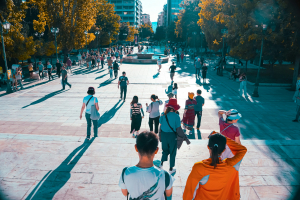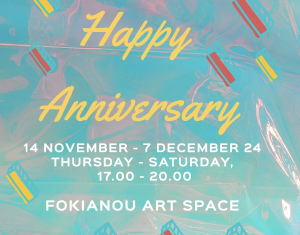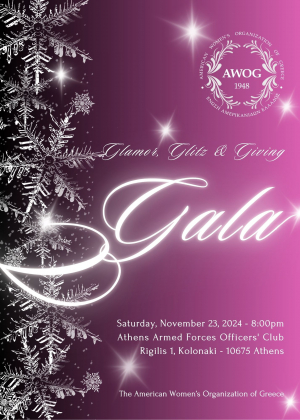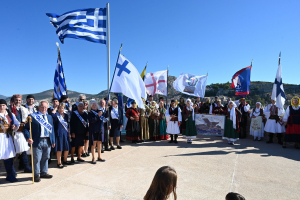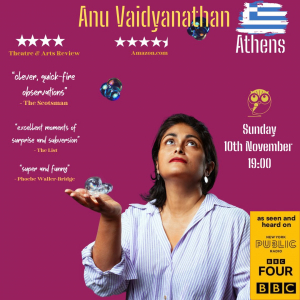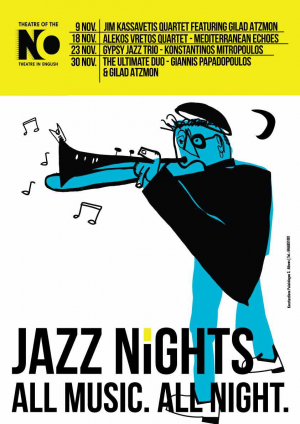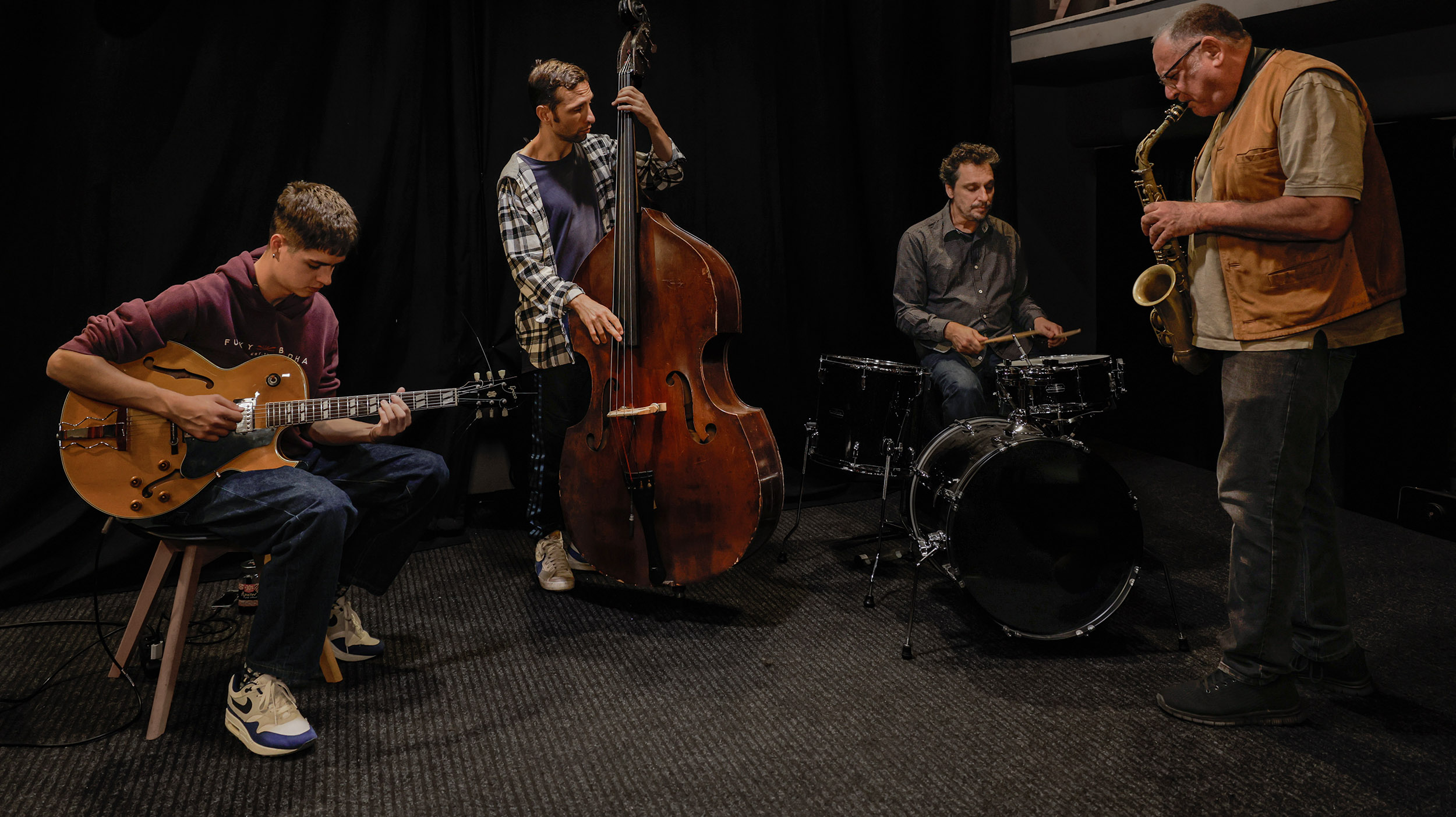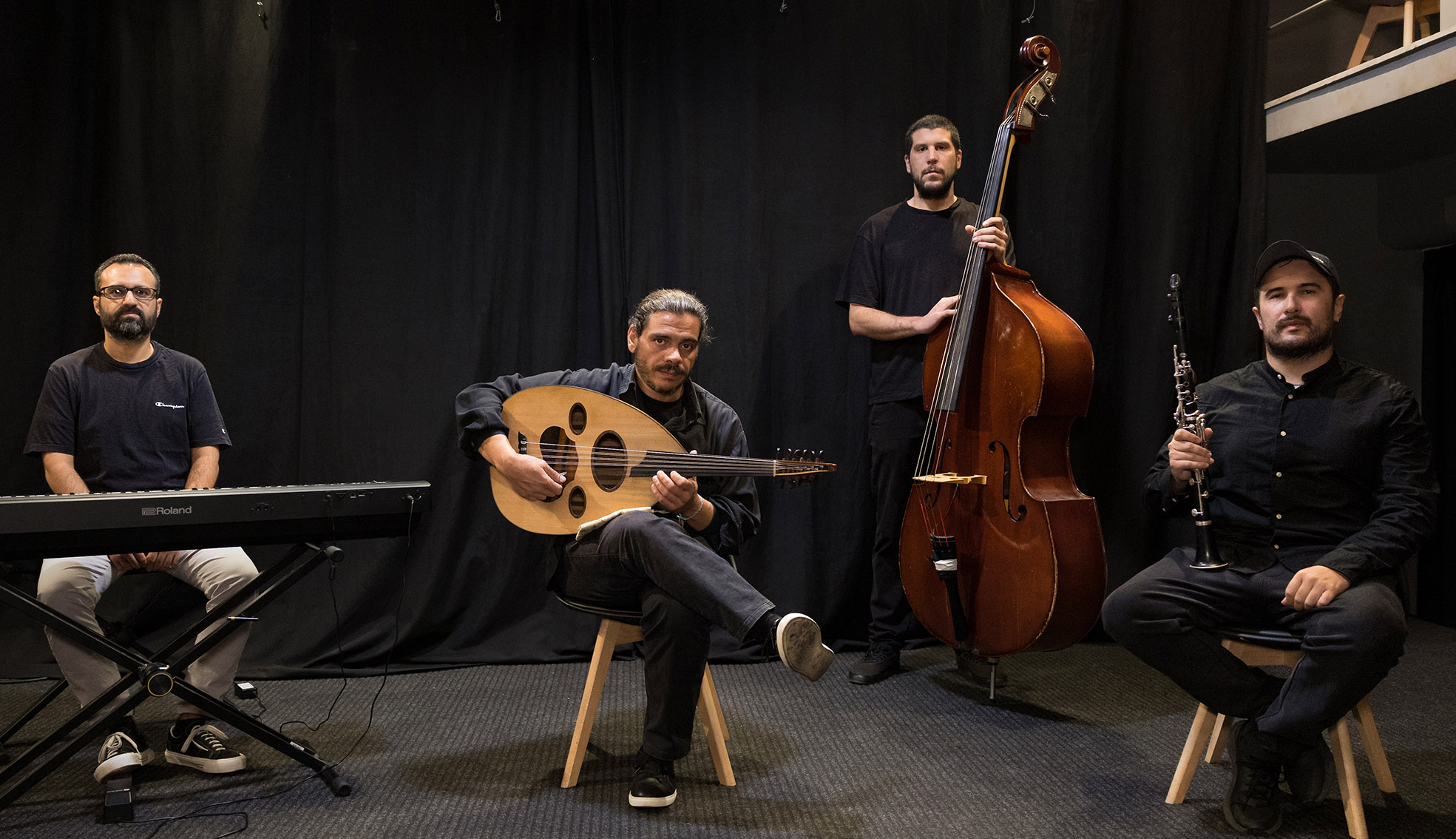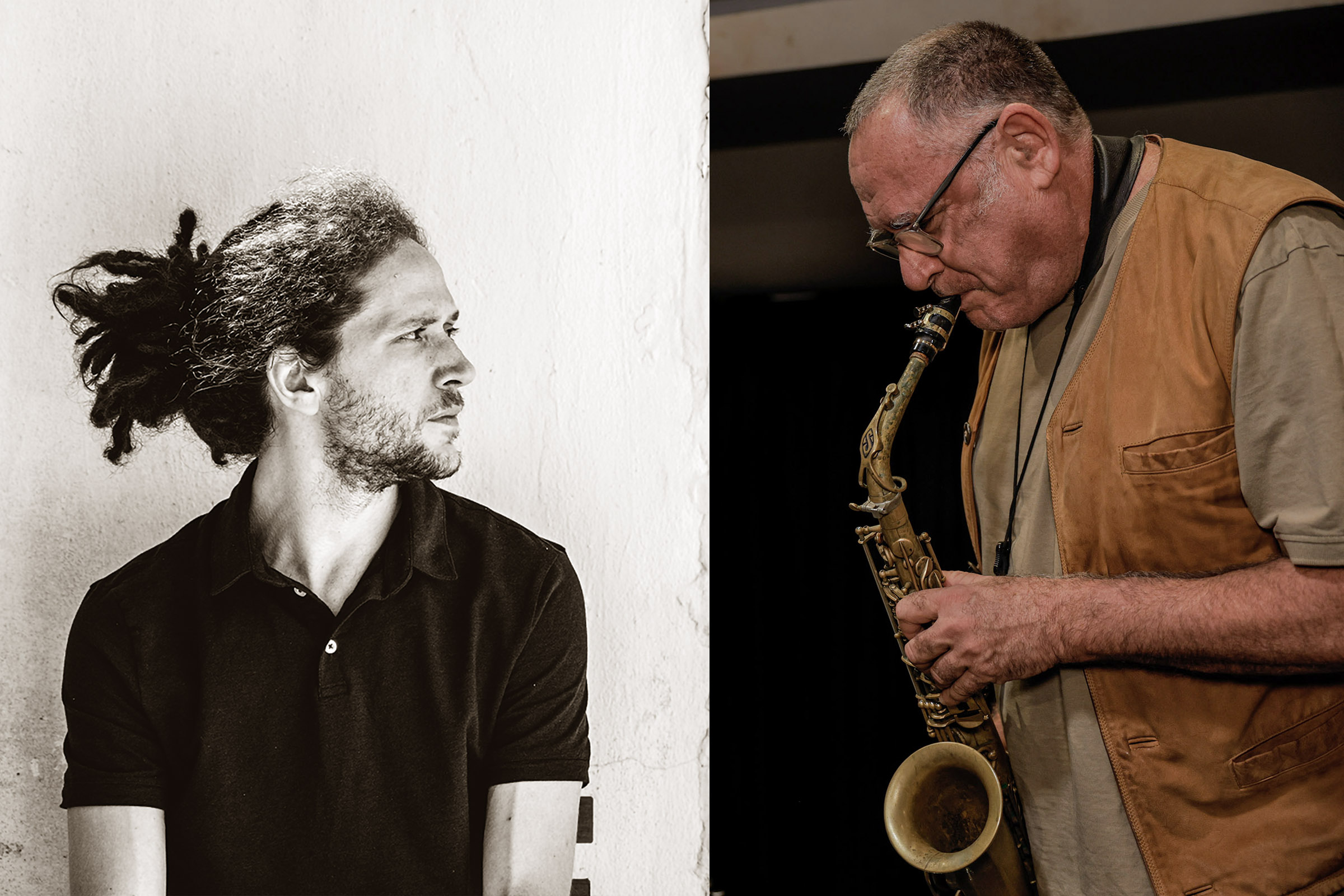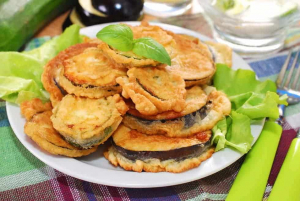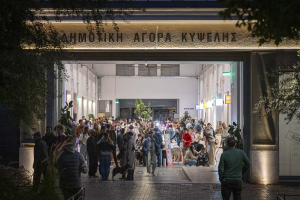ABOUT US
XpatAthens
Why Athens Is One Of The Most Accessible Cities To Explore
- Line 1 (Green Line - Ilektrikos)
Also known as the "Ilektrikos" or electric railway, Line 1 is the oldest of the metro lines, originally built in 1869. It connects Kifisia in the northern suburbs to Piraeus Port in the south, making it ideal for travelers arriving or departing by ferry. Line 1 passes through Monastiraki and Thissio, two stations near the Acropolis and the vibrant center, making it a great option for tourists. - Line 2 (Red Line)
The Red Line runs from Anthoupoli in the west to Elliniko in the south, providing convenient access to major landmarks and hubs like Syntagma Square and Omonia Square. This line connects the historic center with modern neighborhoods and the southern suburbs, where you can catch the tram to the beachside areas. Stops like Acropoli make this line especially popular with visitors, as it leads directly to the New Acropolis Museum. - Line 3 (Blue Line)
The Blue Line extends from Nikaia in the southwest to Athens International Airport in the east, making it the primary connection between the city and the airport. Along the way, Line 3 passes through Monastiraki and Syntagma, key stops for exploring central Athens. This line is incredibly convenient for international travelers, providing a direct route between the airport and Athens’ main attractions.
- Line T6 (Syntagma to Pikrodafni)
This line runs from Syntagma Square in the city center to Pikrodafni, connecting various neighborhoods in between. It’s a popular choice for those looking to explore more residential areas of Athens while enjoying a slower-paced ride through the city. - Line T7 (Asklipio Voulas to Agia Triada)
The T7 line connects the southern suburbs, from Asklipio Voulas in Voula to Agia Triada in Piraeus, traveling along the scenic Athenian Riviera. This line is especially enjoyable in the warmer months, providing direct access to beaches and coastal cafés. If you’re in the mood for a relaxed day along the Mediterranean, the tram offers a comfortable way to reach Athens’ beautiful coastal destinations.
Important Tips for Public Transport in Athens
While Athens’ public transport options are generally reliable, it’s worth noting that service hours can vary. Metro trains run from early morning until around midnight, with extended hours on weekends, while buses and trams typically follow similar hours. However, late-night service is limited, so it’s wise to plan ahead if you’re out late.
For convenience, travelers can purchase an “Ath.ena” card, which offers access across all public transportation systems and can be reloaded as needed. Tickets are reasonably priced, and there are options for single rides, day passes, and even weekly passes, making it an economical choice for getting around the city.
Overall Accessibility and Flexibility
Despite occasional scheduling limitations, Athens remains highly accessible and easy to navigate. Its compact city center, combined with varied public transport options, allows visitors to explore at their own pace, whether they prefer walking or a quicker ride. The city’s emphasis on pedestrian-friendly zones, coupled with its transportation network, means you can immerse yourself in its history, culture, and scenic beauty without the hassle of renting a car.
Happy Anniversary - Group Show At FokiaNou Art Space
Curators: Mary Cox and Panagiotis Voulgaris
Participating artists: Blanka Amezkua, John Bicknell, Maria Bourbou, Mary Cox, Susan Daboll, Anastasia Denos, Sarah Ettlinger, Chrysostomos Galathris, Dimitra Gounari, Jane Grover, Chris Hawtin, Marietta Kallona, Nina Kotamanidou, Loula Leventi, Maria Letsiou, Dimitra Maltabe, Despoina Pantazi, Dionisios Pappas, Nikos Podias, Caroline Pradal, Marina Rovithi, Geeta Roopnarine, Christian Schmid, Stella Sevastopoulou, Ioanna Terlidou, Iliana Theodoropoulou, Georgia Maggy Touliatou, Ira Vlahaki, Panagiotis Voulgaris, Gregoria Vryttia, Erika Winstone, Piyi Wong, Kiveli Zachariou
Hours: Thursday – Saturday, 17.00 -20.00
Opening: Thursday, 14 November, 18.00
Glamor, Glitz & Giving Gala - AWOG Greece
Saturday, November 23, 2024 - 8:00 PM
Join us for an unforgettable evening where philanthropy meets fun as we come together to celebrate our commitment to community, social impact, and women's leadership.
Highlights of the evening:
- A welcome drink and a 4-course buffet dining experience including salads, main and side dishes, a carving station, and dessert.
- Unlimited soft drinks and wine to keep the celebration flowing.
- Not one, but two incredible DJs spinning tracks to keep you dancing all night long.
AlphaBank Account: IBAN GR6201401430143002002004270
IRIS PAYMENTS: AWOG Tax Number (A.Φ.M.): 090169569
(*Please note that all transfer fees/charges must be covered above ticket cost. Failure to cover these expenses, will result in your reservation not being valid)
Upon payment, please note your surname on the bank subject line and email your payment receipt at: info@awogreece.org
Proceeds from the evening will go directly to supporting AWOG's charity initiatives and community programs. Let's make this night one to remember, while contributing to a cause that matters!
Thank you for being part of this meaningful celebration -- we can't wait to see you on the dance floor!
Learn more about this organization here.
Armatomenoi Moraites – Nafplio 1822 – Staikos Staikopoulos
Athens English Comedy Club - Sunday November 10th!
ABOUT ANU
Anu Vaidyanathan is a comedian, Doctor of Engineering, and an endurance athlete who was both the first person from India to complete an Ironman Triathlon AND the first Asian woman to complete an Ultraman (10k swim, 420k bike, 84.4k run). She reallllly doesn't do things in halves, friends!
Her debut comedy hour 'BC:AD | Before Children, After Diapers' has done two runs at the Edinburgh Fringe (2023 & 2024), while this year she also debuted her theatre show "Menagerie" at the Edinburgh Fringe as well.
"Super and funny", Phoebe Waller-Bridge
"Refreshingly frank, relatable, and inspiring", Fringe Biscuit
"A cathartic whirlwind" Entertainment focus
1/2, Amazon
She has gigged across greater Europe and London, while she has trained at the Royal Academy of Dramatic Art in London and Ecole Philippe Gaulier in France.
Anu is also a filmmaker and engineer whose memoir 'Anywhere But Home' was long-listed for the Mumbai Film Festival’s word-to-screen market in 2016. Her feature scripts have found themselves at the final rounds at Sundance and Rotterdam. Her book and films are available on Amazon and on request.
Find Anu on Instagram, HERE!
* * * * * * * * * * * * * * * * * * * * * * * * * * * * * * * * * * * * * * * * * * * * *
Date: Sunday, November 10th
Time: 21:00 (Doors open 20:40)
Tickets:
€10 early-bird | €15 online | €20 at the door
We also offer 3 free tickets per show to persons with disabilities or unemployed persons (email/phone reservation required).
Duration: 1h30 + interval
Recommended for ages 16+
Address: ELIART Theater - Konstantinoupoleos 127 (closest to Kerameikos and Metaxourgeio metro stations).
The theatre is wheelchair accessible.
"No, Jazz Saturdays" At Theatre Of The No
Credits:
Photography: Nikos Pagonakis
Poster: Sotiria Bramou
Social Media: Kallia Gerakianaki
Communications & PR: Eleftheria Sakareli
Production: FAIL BETTER PRODUCTIONS
Performance Dates:
Saturdays, November 9th , 16th , 23nd, 30nd at 22:30
Ticket Price: €10
Note: The theatre also offers a bar with affordable prices (beer €2.50, drinks €5)
Greece Sets New Goals To Reduce Emissions & Boost Renewable Energy
Originally published on: enterprisegreece.gov.gr
Greek Cuisine Vegan Elements Throughout History
Although contemporary Greek cuisine is often associated with rich meats, seafood, and dairy products, there is a rich history of vegan elements woven throughout traditional Greek cooking since ancient times.
Let’s Start At The Beginning: The Ancient Greek Cuisine
Ancient Greek cuisine was characterized by its frugality and was largely based on the “Mediterranean triad” of cereals (mainly wheat and barley), olives, and grapes, and leaned heavily towards consuming legumes and nuts. Olive trees have been grown and harvested in Greece since at least the mid-4th millennium BC, likely earlier, and the “golden liquid” of the Greek land, e.g.olive oil, was traded across the length and breadth of the Mediterranean throughout antiquity.
Ancient Greeks had simple meals and eating habits. They started their days with plain breakfasts of bread dipped in wine called akratisma, which was sometimes complemented by figs, dates, or olives. They also ate a sort of fried pancake called tiganitis, still popular as a breakfast today after 2.500 years!
Around noon or shortly after, they would have a quick meal called ariston with bread, olive oil, cheese, and fruit, and a snack called esperisma before their most important meal of the day, dinner or deipnon which included a selection of legumes, as well as bread, cheese, olives, eggs, fruits, and nuts.
Soups, made from lentils—the workman’s dish—beans, and vegetables (onions, garlic, cabbage, and turnips), would have also been a regular feature in their diet.
Meat consumption was rare due to its perceived barbarism, while fresh and salted fish were more popular sources of nutrition. This trend continued in Roman and Ottoman times and changed fairly recently when technological progress made meat more readily available.
Other sources of animal protein included milk and cheese, from sheep and goats, and oxygala, an early ancestor of yogurt.
Dessert consisted of fresh or dried fruits, honey, and nuts, while wine was the basic drink of ancient Greeks. They always added water to their wine to prevent dizziness. Drinking unmixed wine was considered a barbaric habit likely to lead to madness and death. For them, wine consumption was considered helpful in liberating their thoughts and feelings and creating meaningful conversations. The ancient Greeks also sweetened their wine with honey and made therapeutic concoctions by adding thyme, pennyroyal, and other herbs.
Pythagoras: The Father Of Veganism?
The concept of veganism in Greece isn’t just a modern trend. Rooted in the ethical treatment of animals and the environment, it can be traced back to the philosophical teachings of Pythagoras in the 6th century BC and Plato in the late 5th century BC. Pythagoras, in particular, was a vocal advocate for animal rights and the benefits of a plant-based diet.
The First Fusion Cuisine & The First Cookbook In The World
In 334 B.C., Alexander the Great extended the Greek Empire’s reach from Europe to India. As a result, certain northern and eastern influences were absorbed into the Greek culinary repertoire, making it the very first example of “fusion’ cuisine.
Archestratus, a poet and philosopher from ancient Greece, is credited with writing the first cookbook in history in 320 B.C. Known as the Father of Gastronomy, Archestratus wrote a humorous didactic poem called Hedypatheia that offered advice on finding the best food in the Mediterranean and revealed secrets of ancient Greek cuisine.
Archestratus is also credited with coining the term “gastronomy,” which means “Rules (-nomy) of the Stomach (gastro).” He presented five golden rules about cooking and eating that remain valuable today, including using high-quality raw materials, combining ingredients harmoniously, avoiding hot sauces and spices, preferring lighter sauces, and using spices in moderation.
Olive Relish: An Ancient Greek Vegan Recipe!
‘How to make green, black, or mixed olive relish. Remove stones from green, black, or mixed olives, then prepare as follows: Chop them and add oil, vinegar, coriander, cumin, fennel, rue, and mint. Pot them: the oil should cover them. Ready to use.’
Cato, On Agriculture 119
The recipe from Cato dates to about 200 BC, but olives provided relish and flavouring all through ancient times. At classical Greek banquets, olives were served in brine, and sometimes, no doubt, they were served as relishes like this.
Cato’s recipe uses cumin, but it can overpower the herbs, so it is listed as optional below. Fennel leaf will not always be easy to find, so the chopped root will serve as a substitute.
Serves 4
Ingredients:
120g black olives
120g green olives
4 tbsp red wine vinegar
4 tbsp extra virgin olive oil
1 heaped tsp chopped fennel leaf or finely diced fennel root
1/2 level tsp ground cumin (optional)
2 tsp chopped fresh coriander
2 tsp dried or chopped fresh rue (you can use a bitter herb or spice such as fenugreek seed as a substitute)
2 heaped tsp dried or 3 tsp chopped fresh mint
Method:
1. Chop the olives roughly and pour on the vinegar and olive oil.
2. Prepare the herbs, chopping them finely if fresh, and add to the mixture.
3. Place the olive relish in a sealable container and pour a little olive oil over the top. At this stage, it can be eaten, as Cato firmly says, but it does improve with a few days of marinating.
4. Try it with pitta bread.
This recipe is found in The Classical Cookbook by Andrew Dalby and Sally Grainger.
Greek Cuisine Evolution & Influences
In 146 B.C., Greece fell to the Romans, which resulted in a blending of Roman influence into Greek cooking. Roman dishes were often more elaborate, and they introduced the Greeks to ingredients such as oysters and truffles.
The Byzantine Empire, which succeeded the Roman Empire, maintained the fusion of Greek and Roman culinary traditions while also absorbing elements from the Middle East and North Africa, particularly in the use of spices. This era saw the rise of elaborate plant-based dishes that showcased the diversity of ingredients available in the region. New ingredients were added to Greek cuisine, such as caviar, nutmeg, lemons, and basil, with fish continuing to be an integral part of the diet.
Also, the rise of Eastern Orthodox Christianity emphasized the importance of fasting and abstinence from meat. This has contributed to the development of a rich repertoire of vegetarian and vegan dishes, particularly during periods such as Lent, when the consumption of animal products is restricted. Dishes like fasolada (bean soup), spanakopita (spinach pie), dolmadakia yalantzi (stuffed with rice and herbs grape leaves), and gigantes plaki (giant baked beans) became even more popular.
Even today, the easiest way to ask in Greece if a dish is vegan is to ask if it is νηστίσιμο (pronounced [neesteessimo] and means Lenten food or Lent-fasting-friendly).
One of the most significant influences on Greek cuisine comes from the Ottoman Empire, which ruled over Greece for nearly four centuries. During this time, Ottoman culinary traditions merged with Greek cooking, resulting in the incorporation of spices like cinnamon, cloves, and cumin, as well as cooking techniques such as braising and using yogurt in dishes like tzatziki. Classic Greek dishes like baklava and souvlaki bear the imprint of this cultural fusion.
The Venetian occupation of certain Greek islands also left its mark on the cuisine. Venetian traders introduced new ingredients, such as pasta, which became popular in dishes like pastitsio, a Greek take on lasagna. Additionally, the Venetians brought a penchant for seafood, leading to the prominence of dishes like seafood risotto and squid ink pasta in certain regions.
The Origin Of The Most Popular Greek Dish: Mussaka
One of the most iconic vegan staples in Greek cuisine is the humble eggplant. Its Latin/French name “aubergine” comes from the historical city of Vergina (Βεργίνα) in Greece! Discovering this new vegetable during his conquest, Alexander the Great wanted to bring it back to his country on his return. After his death, members of his army brought aubergine seeds with them to Greece and specifically to the city of Vergina (Βεργίνα) in 325 BC! The Latin/French term aubergine is coined to Franco-Catalan gastronomist Sergius Rosario Silvestri, co-traveller and close friend to Amerigo Vespucci. Upon arrival at the historical site of Vergina in 1505 AD and wanting to try the local delicacies, Silvestri came across the plant of aubergine. Not knowing its name, he referred to it as aubergine (au Bergine or au Vergine), which in French means at Vergina or found at Vergina. This purple powerhouse is nowadays used in many dishes like the famous moussaka, where it’s layered with tomatoes and herbs to create a rich, satisfying flavor profile.
Many people believe that this famous Greek dish was created in the Palatian kitchens of the Ottoman Empire, but moussaka, as we know it today, did not exist till the end of the 19th century. The dish existed before -under the same name – meaning “moistened” in Arabic and was just a dish made out of fried eggplants and tomato sauce in the Middle East. Greece’s most influential chef, Nikolaos Tselementes, in his effort to modernize Greek cuisine, married French cuisine with Greek tradition, and voilà! Three layers of goodness were created, made with sauteed eggplants, minced meat in sweet-spiced tomato, and bechamel sauce on top.
Another version of it is papoutsakia, meaning little shoes, which consist of whole eggplants stuffed with minced meat and topped with bechamel.
Veganism On The Island Of Crete Today
Throughout history, Greek cuisine has evolved and adapted, incorporating various vegan elements that reflect the region’s agricultural abundance and cultural heritage. In modern times, Greece has seen a resurgence of interest in veganism, with many young Greeks embracing a plant-based lifestyle as a way to reconnect with their cultural heritage. From vegan souvlaki to vegan moussaka, innovative chefs and food bloggers are reimagining traditional Greek dishes with a modern, plant-based twist.
In Crete, the island’s rich agricultural heritage has given rise to an extra-thriving vegan community, where local farmers and chefs are working together to create innovative, plant-based dishes that showcase the island’s unique flavors and ingredients. Crete is fast becoming a vegan paradise.
So the next time you’re in Crete, be sure to seek out some of the amazing vegan options – your taste buds (and your conscience) will thank you. Opa!
Embracing New Beginnings: How To Treat Each Month As A Fresh Start For Your Career
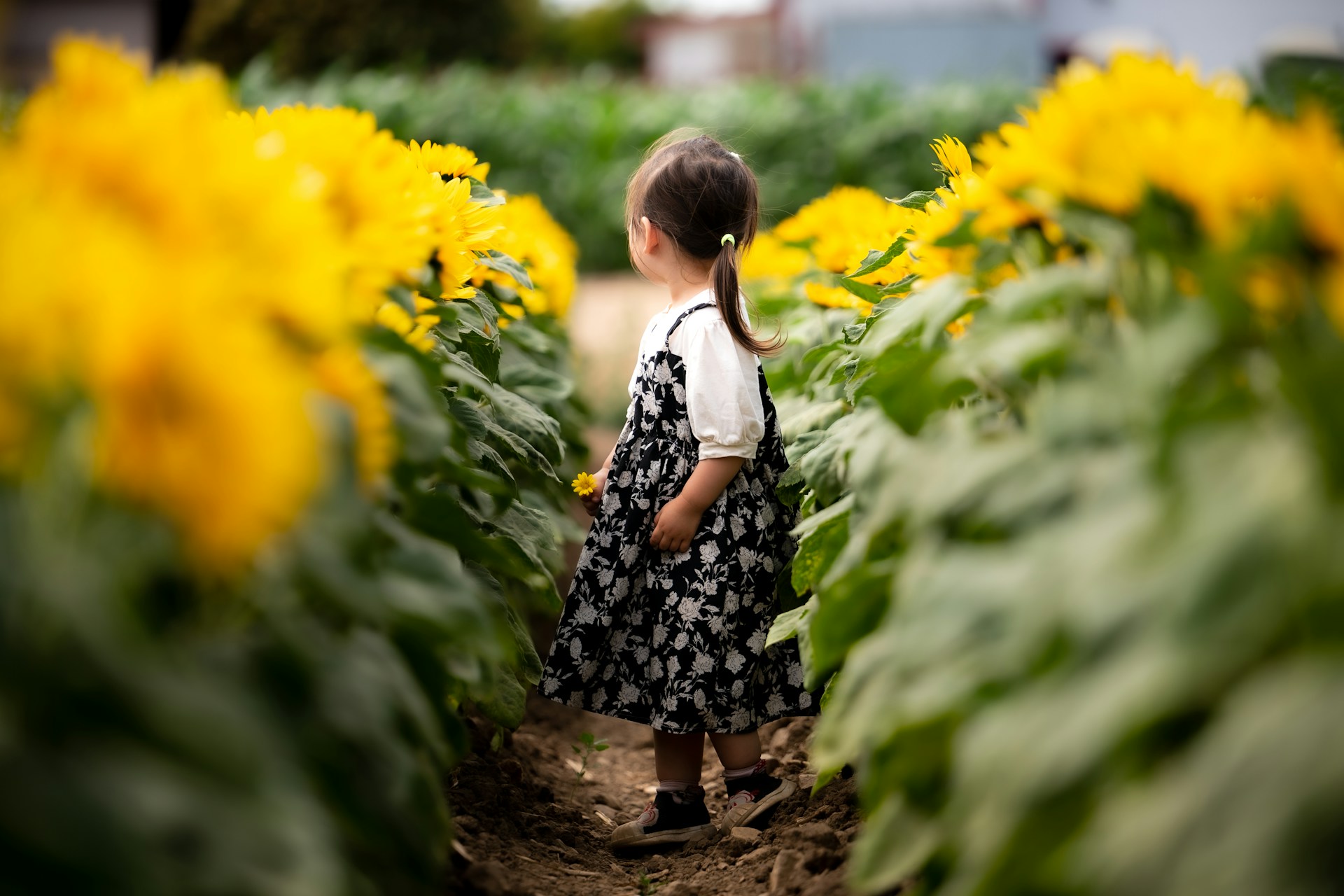


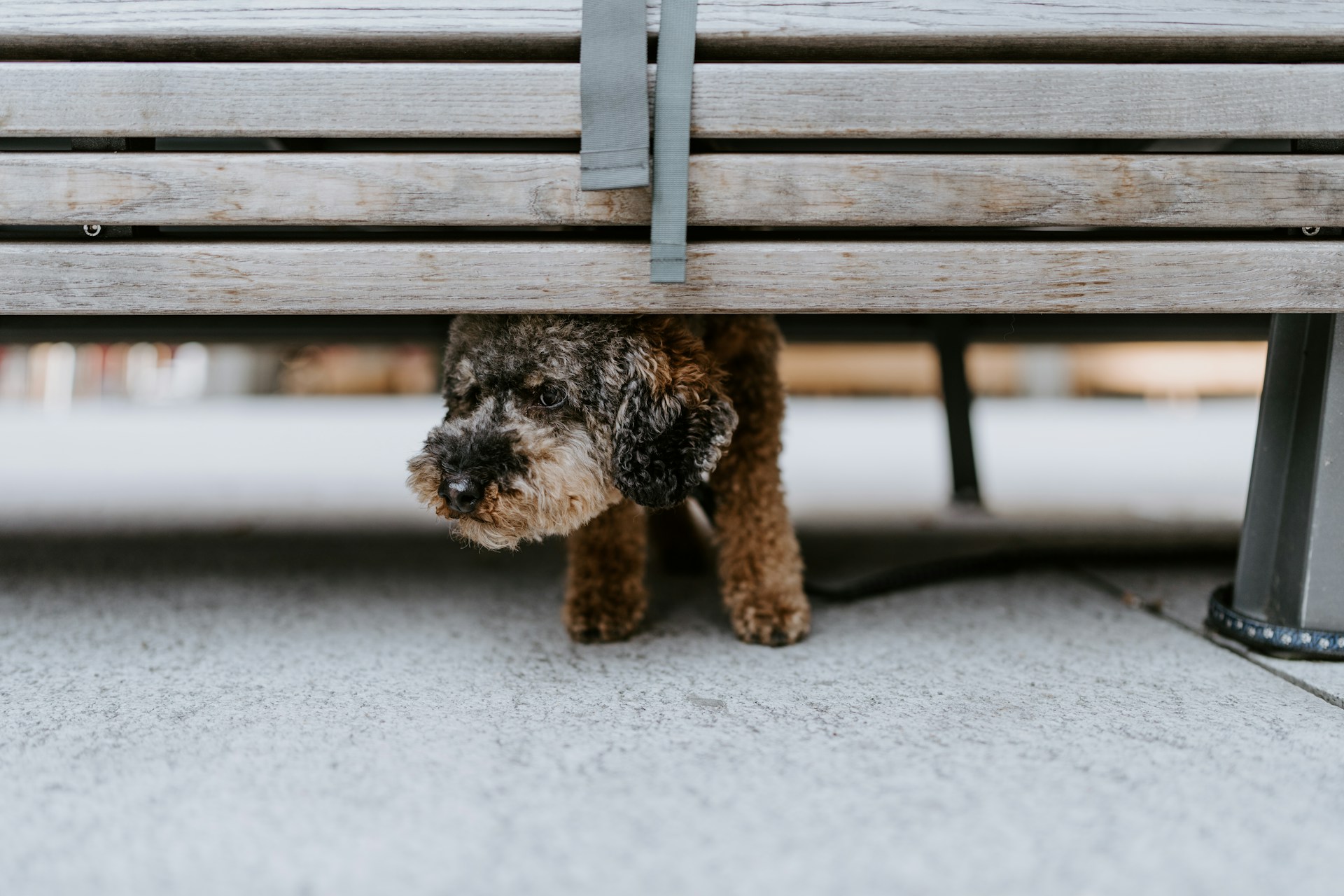

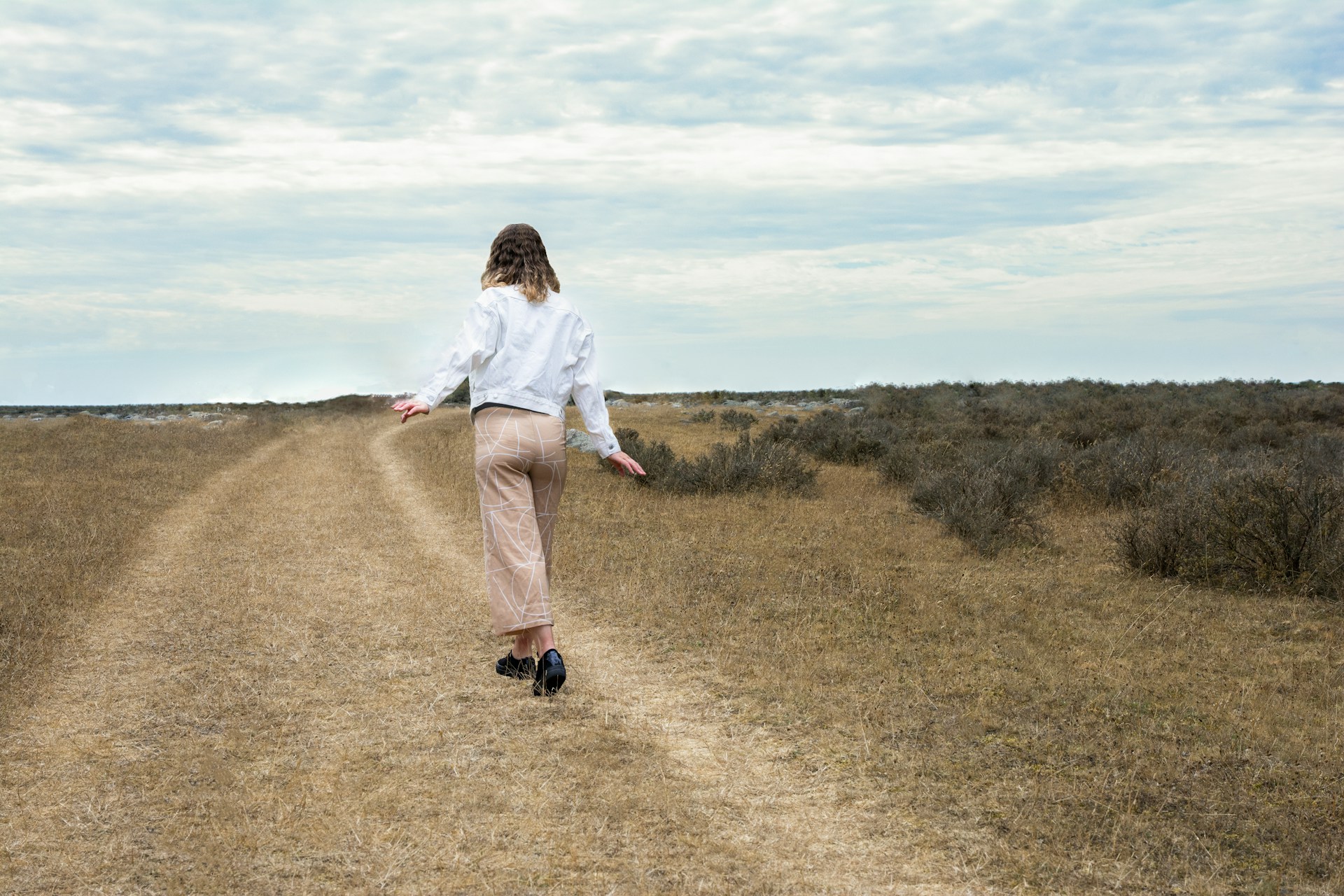

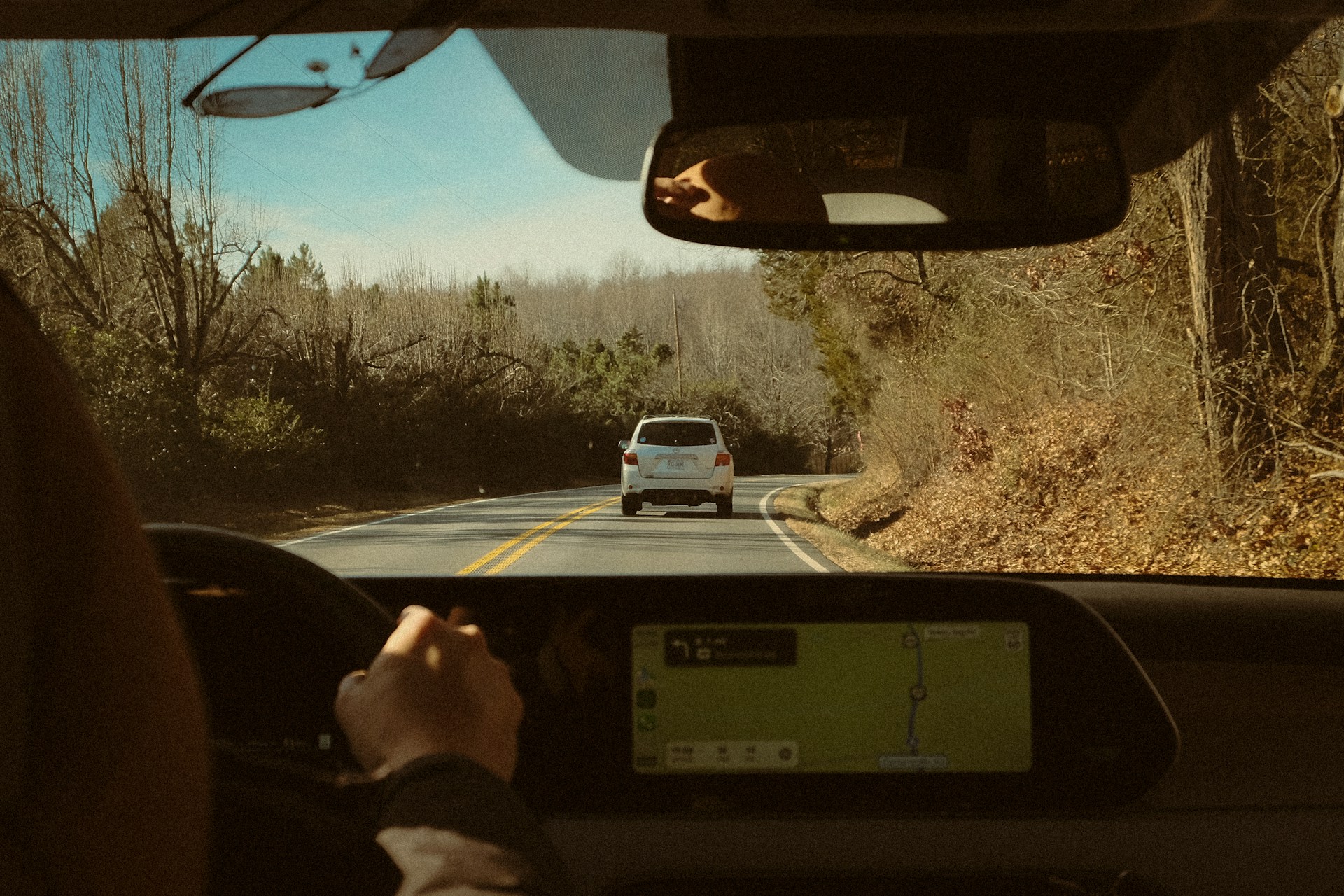
November At The Municipal Market Of Kypseli
Events
Kypseli BEAT
At the historic Kypseli Municipal Market, in one of the city’s liveliest neighborhoods, comes the much-anticipated all-day social event blending DJ sets, aperitivo, street food, vinyl records, and fashion. In a friendly and accessible environment, enjoy amazing music from the city’s top selectors and DJs, creating a diverse musical soundtrack for the soul, mind, and body.
- Sunday, 11/3 || 1:00 PM–11:00 PM
- Atrium
- Free Entry
Passing through Kypseli Municipal Market? Take a quick test! Free, fast, and confidential screenings for HIV and Hepatitis B & C, in collaboration with the Athens Checkpoint Center for Prevention & Sexual Health. On Mondays, November 4 and 18, from 11:00 AM–3:00 PM, Athens Checkpoint staff will be in Creative Lab 2, providing tests and information about sexual health, supported by the AIDS Healthcare Foundation.
- Mondays, 11/4 & 11/18 || 11:00 AM–3:00 PM
- Creative Lab 2
- Free Entry
The Kypseli Municipal Market welcomes the Bantu Dancers to introduce us to the fun world of AFROfitness—a fitness style incorporating Afro Dance that feels like a party! AFROfitness is a workout program combining traditional African dance moves with contemporary dance expressions, enhancing fluidity, range of motion, and genuine movement. Through AFROfitness, participants explore various dance expressions inspired by African traditions, making it an excellent full-body workout and a fun way to build confidence, improve stamina, and body coordination.
- Mondays, 11/4, 11/11, 11/18 & 11/25 || 7:00 PM–8:30 PM
- Atrium
- Free Entry (registration required here)
A market with fresh, natural, and organic produce from small producers.
- Every Wednesday || 2:00 PM–5:00 PM
- Atrium
- Free Entry
The Bees Hub brings the “Back Yard Art” exhibition to the Kypseli Municipal Market for a November weekend. This exhibition aims to be a meeting point for art and handmade lovers, showcasing unique pieces that express each creator’s personality and passion. Through a range of artistic approaches, you’ll have the chance to meet original creations, such as jewelry, natural cosmetics, woven and knitted items, and artworks inspired by tradition and modern life. The exhibition’s goal is to connect visitors with artists, highlighting the value of handmade creation as a medium of expression and communication.
- Friday 11/8 to Sunday 11/10 || 10:00 AM–9:00 PM
- Atrium
- Free Entry
Dogs’ Voice is organizing a big celebration day at the Kypseli Municipal Market. The organization’s main goal is to promote hosting and adopting pets. Since summer 2023, Dogs’ Voice has taken in 911 animals affected by natural disasters, plus an additional 166 from the 2024 fires in Varnavas, leaving 50 dogs still looking for their forever homes. Through this event, Dogs’ Voice hopes to inform people about their work, encourage support, and inspire visitors to adopt, foster, and love through volunteering.
- Saturday 11/16 || 12:00 PM–9:00 PM
- Atrium
- Free Entry
Stratis Bournazos’ book tells his fascinating story, following the paths of liberal anti-communism and the alliance of the non-communist Left with the American state. It also sheds light on the frustrated history of the Greek CCF, exploring why the organization’s meeting with Greek intellectuals and politicians, both conservative and liberal, was fruitless for both sides. This journey through Cold War intellectual life reveals multiple shades of anti-communism, the gap between progressive anti-communists and “national state” intellectuals, the challenges of modernization in 1950s Greece, and the importance of intellectual independence in the explosive 1960s.
- Tuesday 11/19 || 7:00 PM–10:00 PM
- Atrium
- Free Entry
The Kypseli Municipal Market hosts the Craft & Create Market for a weekend, gathering talented creators, amazing handmade items, and unique brands. Join us for an unforgettable weekend filled with creativity and positive vibes!
-
Saturday 11/23 to Sunday 11/24 || 12:00 PM–9:00 PM
-
Atrium
-
Free Entry
Workshops
Internet Skills for Ages 60+
The successful digital empowerment workshop is back at Kypseli Municipal Market! We meet every Tuesday for the advanced group and every Wednesday for beginners, 10:00 AM–12:00 PM. With tablet use, we learn how to surf the internet, search for useful information, communicate online with friends and family, and complete transactions with the government.
- Advanced Group: Every Tuesday from 10/1 to 12/3 || 10:00 AM–12:00 PM
- Creative Lab 1, Cost: €60 for the full 10-session course
- Beginners Group: Every Wednesday from 10/2 to 12/4 || 10:00 AM–12:00 PM
- Tickets available at more.com
Art Therapy Workshops
These art therapy workshops, led by expressive therapist Marili Topouzoglou, offer a chance for personal growth and self-expression through various artistic methods. Activities include finger painting, creating ceramic totems, storytelling, and self-portrait exploration. Participants discover new ways to connect with memories, senses, and their inner worlds, enhancing self-awareness, creativity, and a sense of community in a safe space for creative experimentation and emotional expression.
- Every Tuesday from 10/1 to 11/26 || 6:00 PM–8:00 PM
- Creative Lab 1
- Free Entry (registration required here or call 2111824102)
Introduction to Woodworking with Hōkō
Learn basic woodworking techniques while making your first project—a handy stool to take home at the end of the course.
- Every Wednesday from 10/9 to 11/27 || 6:30 PM–8:30 PM
- Creative Lab 2
- Cost: €220 for the full 8-session course
- Info and reservations here
Dive into Imagination
Art workshop for 1st, 2nd, and 3rd-grade children with Kyriakos Mourtzis. Ready to become a unique young artist and dive into the world of colors and imagination? Join us at the Kypseli Municipal Market to play with color and shape, get messy with clay, paint with brushes, and create fantastic worlds that only you will understand!
- Every Wednesday from 11/6 to 11/27 || 6:00 PM–7:00 PM
- Creative Lab 1
- Cost: €30 for the full 4-session course
- Tickets available at more.com
Photography Workshop: The Art of Wedding Flatlays
Kypseli Municipal Market hosts the Photography Workshop: The Art of Wedding Flatlays, designed for photographers, content creators, e-shop owners, event and wedding planners, and anyone passionate about design and composition. Renowned photographer Monika Kritikos will lead the workshop, sharing the secrets of the art of wedding flatlay and demonstrating how these techniques can be applied to product and e-commerce photography.
- Saturday 2/11 || 11:00 AM–6:00 PM
- Creative Lab 2
- Cost: €320
- Tickets available here
Little Pastry Chefs in Action
Byzantion Bakery invites you to the magical world of baking with a unique Halloween workshop for kids. Join us to create spooky Halloween cookies. Using creative ingredients like fondant and colorful glazes, kids will decorate cookies in shapes like ghosts, pumpkins, and bats! Ingredients include egg, flour, butter, sugar, apricot jam, food coloring, and fondant.
- Saturday 2/11 || 11:00 AM–2:00 PM
- 11:00–11:30 AM & 11:40 AM–12:10 PM for ages 6–8
- 12:20–12:50 PM & 1:00–1:30 PM for ages 9–10
- Atrium
- Free entry; registration required at byzantionbakery@gmail.com (limited spaces)
Plant Propagation in Water with Hōkō
Hōkō presents the easiest technique for plant propagation using water. Each participant will learn how to cut and propagate a plant to take home. You’ll also learn how to care for the cutting as it roots and how to transfer it to the soil.
- Thursday 7/11 and every first Thursday of the month until December || 6:30–7:30 PM
- Creative Lab 2
- Free entry; reservation required here
Creating with Chrysolie: Watercolor Painting
Discover the art of watercolor inspired by nature’s beauty! In this workshop, we’ll explore how to capture natural landscapes and elements through watercolor techniques. Learn the basics and experiment with colors and textures to create impressive pieces inspired by the world around us. Embrace the creative process with a fresh perspective and natural inspiration!
- Saturday 9/11 || 7:00–9:00 PM
- Creative Lab 2
- Cost: €22
- Reservations: chrysoliesart@gmail.com or 6984561871
Candle Making Workshop
Join us for a hands-on, creative workshop exploring the world of natural candles. Spend four hours immersed in colors, scents, and decorations, making beautiful container candles and learning everything you need to create your own natural candles!
- Sunday 10/11 || 11:00 AM–3:00 PM
- Creative Lab 2
- Free entry; reservations on Instagram @beemamacourses or 6909068341
First Aid for Infants, Children, and Adults
This First Aid seminar at Kypseli Municipal Market is for parents, teachers, caregivers, and anyone interested in learning important skills for handling emergencies across all ages. Participants will learn basic techniques like CPR, anti-choking methods, and managing injuries and allergic reactions. The seminar includes theoretical training and practical exercises to build confidence in handling emergency situations.
- Tuesday 12/11 || 5:30–7:00 PM
- Creative Lab 2
- Cost: €30
- Required reservations on the Momscent Instagram page or 6979545608 (limited spaces)
Vlavi Book Club
The book club of Vlavi magazine is a space for engaging with essays and literary texts that have shaped the history of publishing. The only requirement for participation is reading the books suggested by the magazine’s editorial team and preparing for a critical discussion.
- Thursday 14/11 || 6:00–9:00 PM | Discussing “Fashion” by Georg Simmel, Plethron Editions
- Saturday 16/11 || 6:00–9:00 PM | Discussing “The Sound and the Fury” by William Faulkner, Gutenberg Editions
- Creative Lab 2
- Free entry
Wax Wrap Workshop
In this workshop, learn to create natural, household wax wraps, an eco-friendly alternative to plastic wrap for food storage and transport. You’ll learn how to make, use, and renew them, and will leave with two personal-use wraps.
- Friday 22/11 || 6:30–8:00 PM
- Creative Lab 2
- Cost: €30
- Reservations: welcome@astikimelissa.gr or at the Astiki Melissa shop in Kypseli Municipal Market
Creating with Chrysolie: Mixed Media on Canvas
Explore your creativity with mixed media on canvas! In this workshop, we’ll use acrylic paints, markers, paper, glue, scissors, stencils, and more to create impressive artworks. Through experimental techniques and material combinations, you’ll discover new textures and techniques to express your imagination and creativity on each canvas. Embrace the joy of creation and explore the possibilities of mixed media together!
- Saturday 23/11 || 7:00–9:00 PM
- Creative Lab 2
- Cost: €25
- Reservations: chrysoliesart@gmail.com or 6984561871

